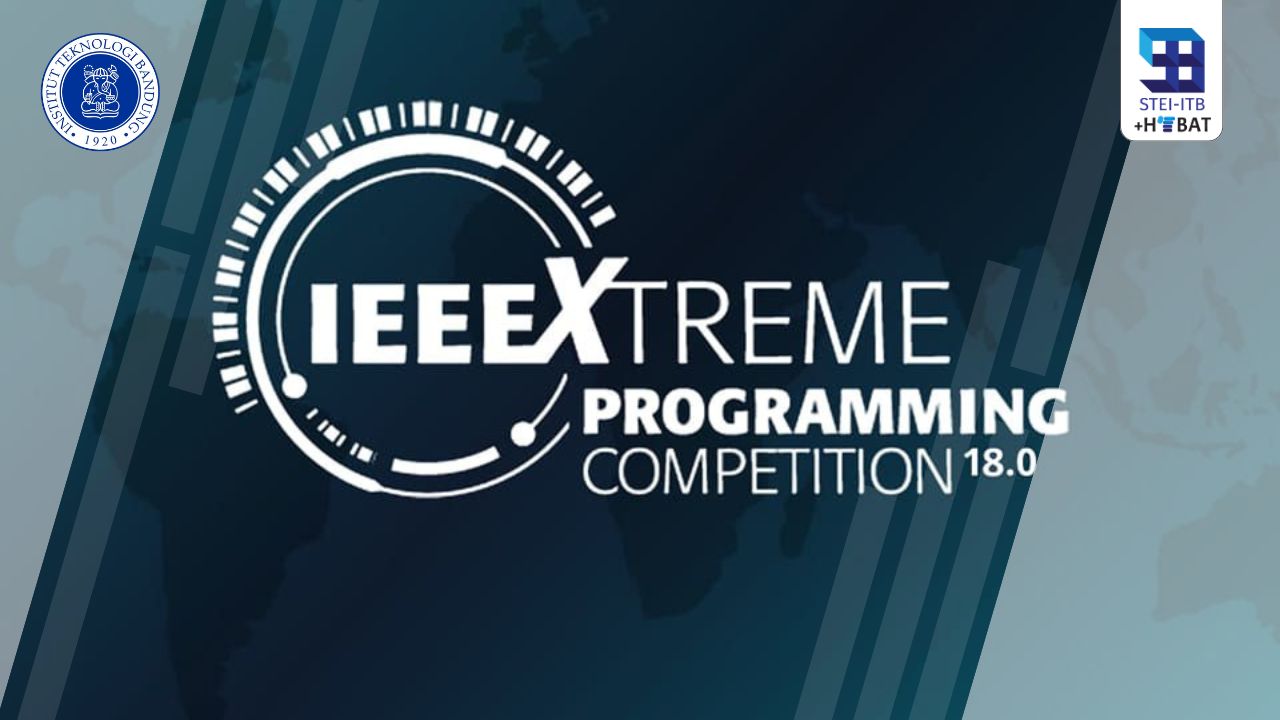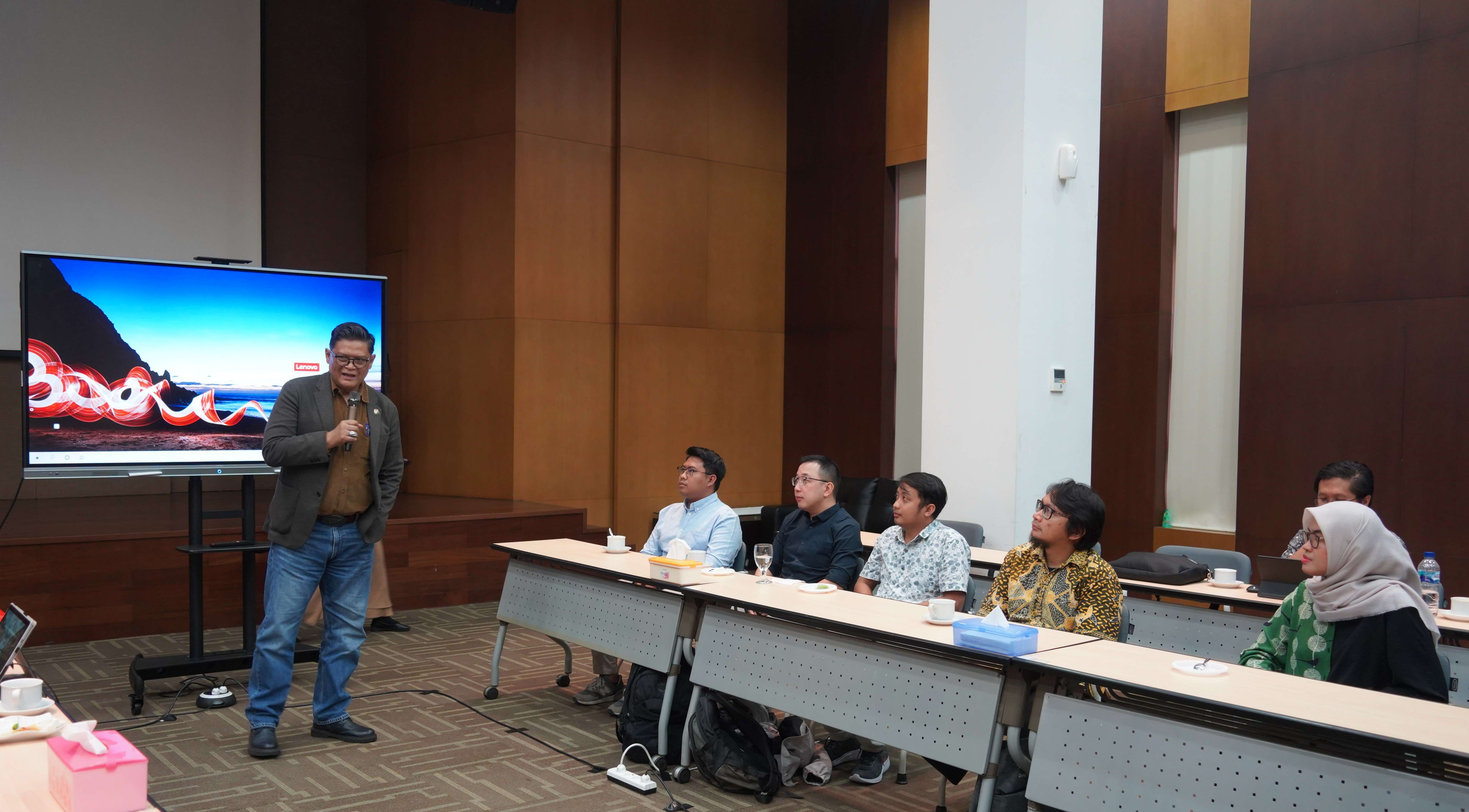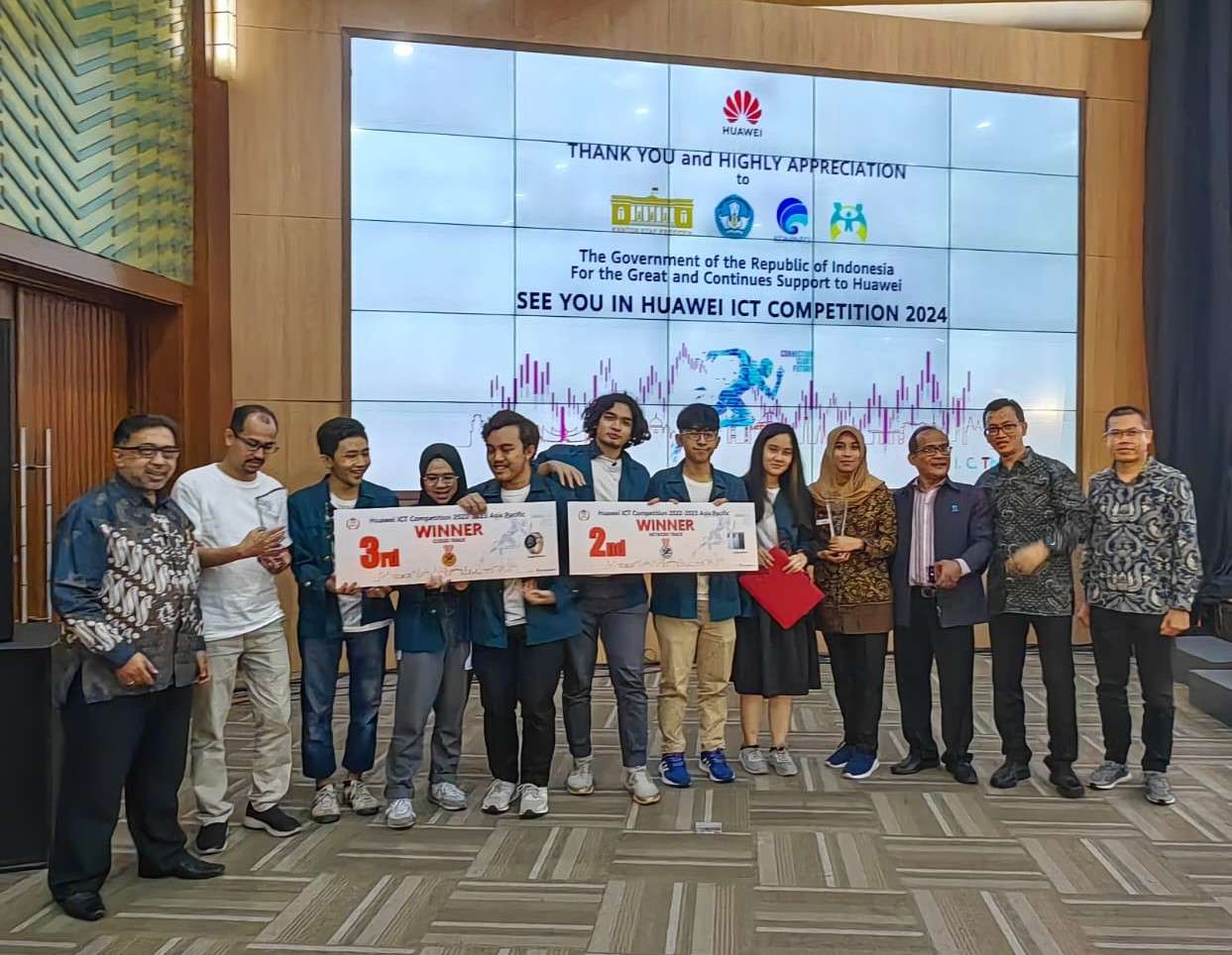Undergraduate Program in Informatics
The Informatics Study Program provides education in the areas of theoretical foundations of information and computing as well as practical techniques for their application in computer systems.
In the current era of globalization, IT (Information Technology) has become an essential requirement for every organization, including companies in both the service and goods sectors, as well as nonprofit organizations. Moreover, this technology is one of the fields that can directly impact individuals in areas such as communication, entertainment, and education. Therefore, the demand for professionals in the field of Informatics Engineering is very high, both nationally and internationally. In addition to being absorbed into the job market, graduates of Informatics Engineering can also easily become entrepreneurs, leveraging their expertise and creativity in the field of Informatics.
The establishment of the Informatics Engineering Study Program at ITB began with the use of computers under the management of the ITB Computer Center. Driven by a spirit of growth and development, formal education on computers started with the launch of the Technical Expert Education in the Computer Usage Department (PAT-JPK) in 1978.
Education Objectives
• Lulusan akan memiliki karir yang sukses dalam profesinya di bidang Teknik Informatika atau bidang yang terkait
• Lulusan akan berhasil menempuh studi pascasarjana atau terlibat dalam pengembangan professional
• Lulusan akan menunjukkan kepemimpinan dan berperan aktif dalam memajukan komunitasnya, khususnya dalam pengembangan alat, teknologi, dan metodologi baru
Learning Outcomes
• Menganalisis masalah komputasi yang kompleks dan menerapkan prinsip-prinsip komputasi serta disiplin ilmu terkait untuk mengidentifikasi solusi.
• Merancang, mengimplementasikan, dan mengevaluasi solusi berbasis komputer untuk memenuhi persyaratan komputasi yang diberikan dalam konteks disiplin program.
• Berkomunikasi secara efektif dalam berbagai konteks profesional.
• Mengenali tanggung jawab profesional dan membuat keputusan berdasarkan prinsip-prinsip hukum dan etika dalam praktik komputasi.
• Berfungsi secara efektif sebagai anggota atau pemimpin tim yang terlibat dalam kegiatan sesuai dengan disiplin program.
• Menerapkan teori ilmu komputer dan dasar pengembangan perangkat lunak untuk menghasilkan solusi berbasis komputer yang memenuhi kebutuhan dengan memperhatikan batasan dan sumber daya.
Curriculum
| No | Code | Course | Credits |
|---|---|---|---|
| 1 | FI1101 | Fisika Dasar I | 3 |
| 2 | KI1101 | Kimia Dasar I | 3 |
| 3 | MA1101 | Matematika I | 4 |
| 4 | WI1101 | Pancasila | 2 |
| 5 | WI1102 | Berpikir Komputasional | 2 |
| 6 | WI1103 | Pengantar Prinsip Keberlanjutan | 2 |
| 7 | WI1111 | Laboratorium Fisika Dasar | 1 |
| 8 | WI1116 | Laboratorium Interaksi Komputer | 1 |
| Credit Total | 18 | ||
| No | Code | Course | Credits |
|---|---|---|---|
| 1 | IF1210 | Algoritma dan Pemrograman 1 | 3 |
| 2 | IF1220 | Matematika Diskrit | 3 |
| 3 | IF1221 | Logika Komputasional | 2 |
| 4 | IF1230 | Organisasi dan Arsitektur Komputer | 3 |
| 5 | WI2001 | Pengenalan Rekayasa dan Desain | 3 |
| 6 | WI2002 | Literasi Data dan Inteligensi Artifisial | 2 |
| 7 | WI2005 | Bahasa Indonesia | 2 |
| Credit Total | 18 | ||
| No | Code | Course | Credits |
|---|---|---|---|
| 1 | IF2110 | Algoritma dan Pemrograman 2 | 3 |
| 2 | IF2120 | Probabilitas dan Statistika | 3 |
| 3 | IF2123 | Aljabar Linier dan Geometri | 3 |
| 4 | IF2130 | Sistem Operasi | 3 |
| 5 | IF2150 | Rekayasa Perangkat Lunak | 4 |
| 6 | IF2180 | Sosio-informatika dan Profesionalisme | 2 |
| 7 | WI2003 | Olah Raga | 1 |
| Credit Total | 19 | ||
| No | Code | Course | Credits |
|---|---|---|---|
| 1 | IF2010 | Pemrograman Berorientasi Objek | 3 |
| 2 | IF2211 | Strategi Algoritma | 3 |
| 3 | IF2224 | Teori Bahasa Formal dan Otomata | 4 |
| 4 | IF2230 | Jaringan Komputer | 3 |
| 5 | IF2240 | Basis Data | 3 |
| 6 | WI2022 | Manajemen Proyek | 2 |
| Credit Total | 18 | ||
| No | Code | Course | Credits |
|---|---|---|---|
| 1 | IF3110 | Pengembangan Aplikasi Web | 3 |
| 2 | IF3130 | Sistem Paralel dan Terdistribusi | 3 |
| 3 | IF3140 | Sistem Basis Data | 3 |
| 4 | IF3141 | Sistem Informasi | 3 |
| 5 | IF3151 | Interaksi Manusia Komputer | 3 |
| 6 | IF3170 | Inteligensi Artifisial | 4 |
| Credit Total | 19 | ||
| No | Code | Course | Credits |
|---|---|---|---|
| 1 | IF3210 | Pengembangan Aplikasi Piranti Bergerak | 2 |
| 2 | IF3211 | Komputasi Domain Spesifik | 2 |
| 3 | IF3250 | Proyek Perangkat Lunak | 4 |
| 4 | IF3270 | Machine Learning | 3 |
| 5 | WI2004 | Bahasa Inggris | 2 |
| Credit Total | 13 | ||
| No | Code | Course | Credits |
|---|---|---|---|
| 1 | IF4090 | Kerja Praktik | 2 |
| 2 | IF4091 | Proposal Preparation | 2 |
| 3 | WI2006 | Kewarganegaraan | 2 |
| 4 | WI201X | Agama | 2 |
| Credit Total | 8 | ||
| No | Code | Course | Credits |
|---|---|---|---|
| 1 | IF4092 | Tugas Akhir | 4 |
| Credit Total | 4 | ||
Penjelasan detail untuk masing – masing Mata Kuliah dapat diakses melalui link berikut : https://akademik.itb.ac.id/id/program/S1/program-studi/135
Specialization
Minor
Program Sarjana Internasional
International Undergraduate Program (IUP) di Institut Teknologi Bandung (ITB) memberikan pengalaman pendidikan bertaraf internasional melalui kurikulum global dan kesempatan mengikuti kegiatan akademik di universitas mitra luar negeri pada tahun keempat perkuliahan. Informasi lengkap mengenai persyaratan, mekanisme seleksi, serta tata cara pendaftaran dapat diakses melalui laman resmi Admission ITB: https://admission.itb.ac.id/info/international-undergraduate-program/
Career Prospect
- Developing and creating software, including areas such as web application development, mobile apps, security challenges, and user interface design. This career path encompasses the majority of roles in Informatics and Computer Science, with numerous software and IT service companies, as well as various organizations in government, banking, industry, education, and healthcare, offering job opportunities in this field.
- Designing new and better ways to use computers, focusing on advancements and innovations in the application of computer technology. This career path may require an advanced postgraduate degree, followed by positions in research universities or research and development laboratories in industry. It can also involve entrepreneurial activities such as founding high-tech start-up companies.
- Developing effective methods to solve computational problems. This track focuses on the development of theories and algorithms to ensure optimal solutions for computation-intensive problems, such as retrieving information from billions of web documents, processing millions of requests simultaneously, providing new approaches to security issues, and more. This career path typically requires a postgraduate degree, often up to the doctoral level, followed by positions at research universities or in industry research and development laboratories.
Enrollment
Calon mahasiswa yang ingin melanjutkan studi di Sekolah Teknik Elektro dan Informatika (STEI) dapat mengikuti seluruh proses seleksi dan penerimaan yang diselenggarakan secara terpusat oleh Institut Teknologi Bandung (ITB). Informasi resmi mengenai persyaratan, mekanisme seleksi, jadwal, serta tata cara pendaftaran dapat diakses melalui laman Admission ITB pada tautan berikut: https://admission.itb.ac.id/info/stei/
Contact
Contact Us
Undergraduate Program in Informatics
Labtek VIII/Gedung Achmad Bakrie, Jl. II, Lebak Siliwangi, Coblong, Bandung City, West Java 40132
Program Administrator: Edi Mulyana, S.Kom
Phone/WA : +62-812-2233-6642
Parkir di ITB
Kendaraan yang bisa masuk ke dalam kampus ITB dibatasi hanya untuk milik pegawai dan tamu khusus. Terdapat tiga tempat fasilitas parkir utama, yakni:
- Sasana Budaya Ganesha (Sabuga) menjadi tempat parkir terluas untuk kendaraan roda empat dan roda dua. Akses masuk parkir ini bisa diraih dari Jalan Taman Sari atau Jalan Siliwangi.
- Parkir Timur (SR) menyediakan tempat terbatas bagi kendaraan roda empat dan roda dua. Parkir ini buka 24/7, kecuali pada hari-hari besar.
- Parkir Barat (Sipil) dikhususkan untuk pengguna kendaraan roda dua.






